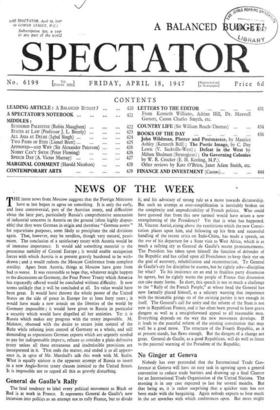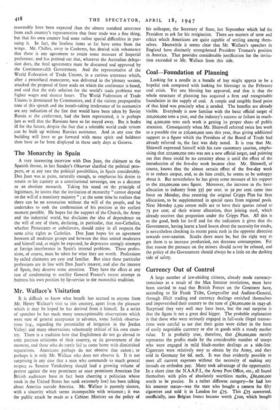No Ginger at Geneva
Nobody has ever pretended that the International Trade Con- ference at Geneva will have an easy task in agreeing upon a general convention to 'educe trade barriers and drawing up a final Charter for an International Trade Organisation of the United Nations. The meeting is in any case expected to last for several months. But that being so, it is rather surprising that a quicker start has not been made with the bargaining. Again nobody expects to hear much in the set speeches with which conferences open. But more might reasonably have been expected than the almost standard utterance from each country's representative that freer trade was a fine thing, but that his own country had some rather special difficulties in pur- suing it. In fact, the liveliest items so far have come from the wings. Mr. Chifley, away in Canberra, has denied with vehemence that there is any agreement to retain some measure of Imperial preference, and has pointed out that, whatever the Australian delega- tion does, the final agreements must be discussed and approved by the Commonwealth Government. And the representative of the World Federation of Trade Unions, in a curious utterance which, after a procedural manoeuvre, was delivered in the -plenary session, attacked the proposal of freer trade on which the conference is based, and said that the only solution for the world's trade problems was higher wages and shorter hours. The World Federation of Trade Unions is dominated by Communists, and if the violent propagandist tone of this speech and the breath-taking irrelevance of its economics are any indication of the line that would have been taken by Soviet Russia at the conference, had she been represented, it is perhaps just as well that the Russians have so far stayed away. But it bodes ill for the future, despite the fact that a tolerable world trade system can be built up without Russian assistance. And in any case the building will have to go forward with more spirit and boldness than have so far been displayed in these early days at Geneva.



































